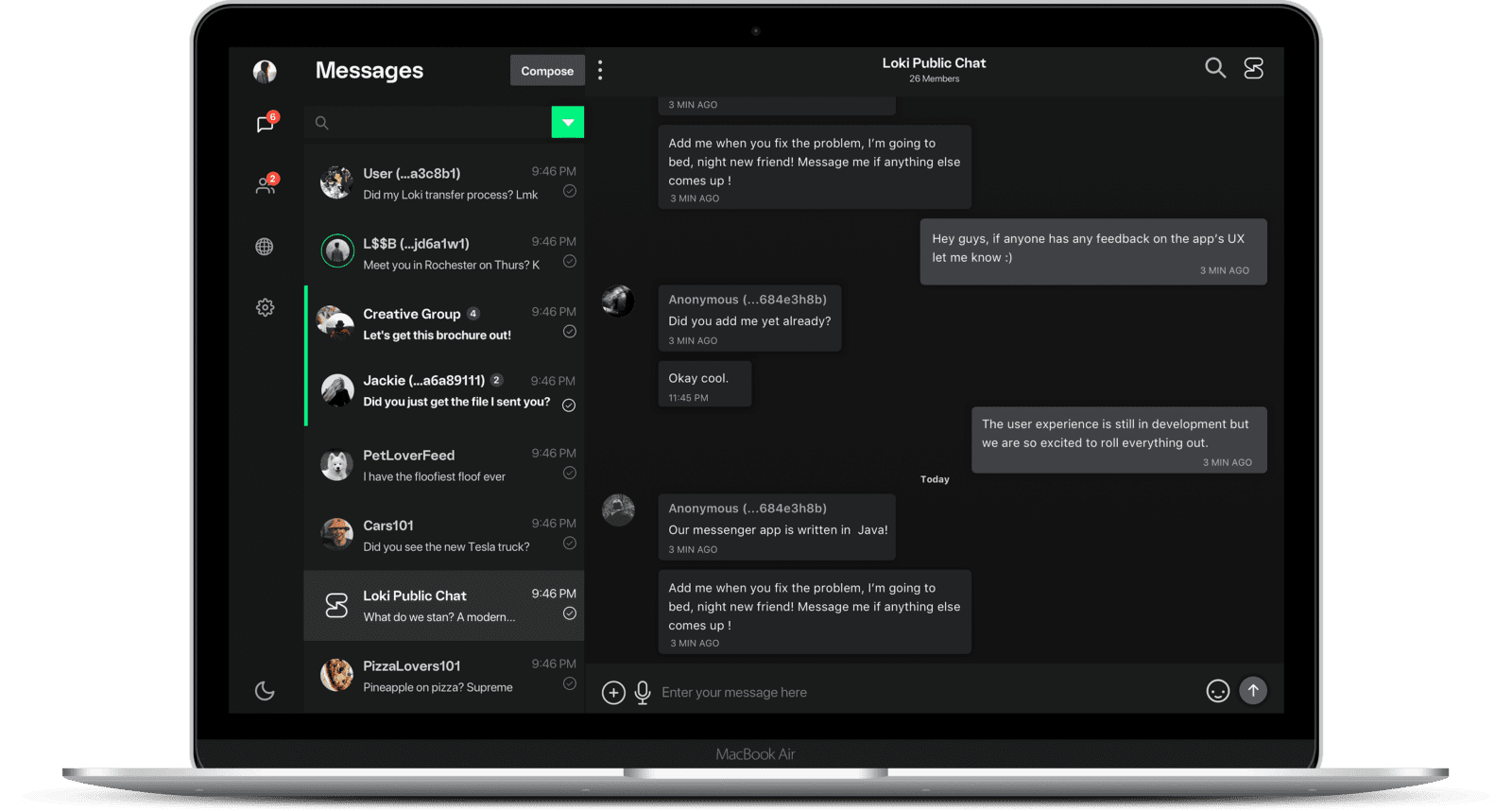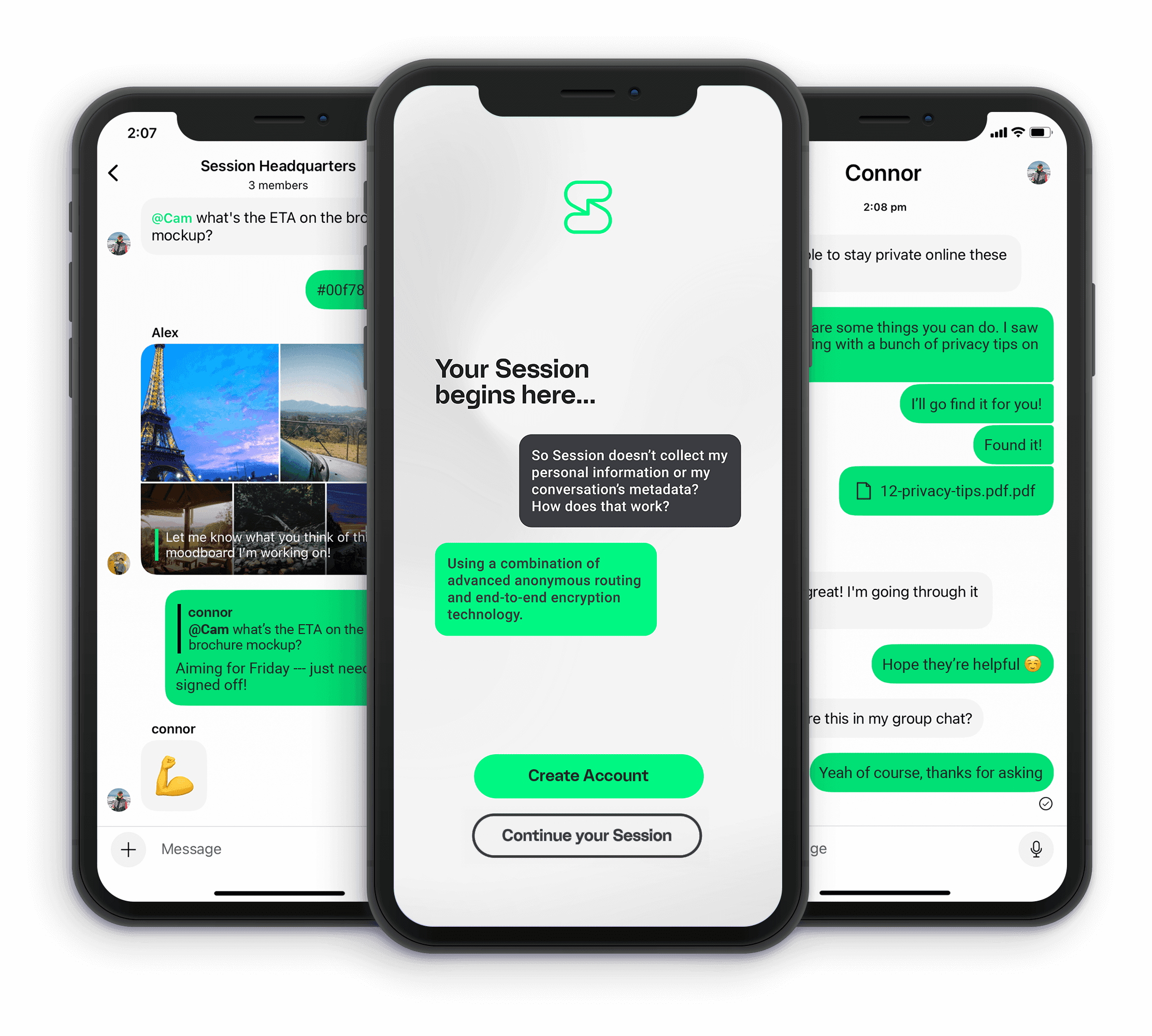Man
Professional
- Messages
- 3,221
- Reaction score
- 1,187
- Points
- 113
You asked us to tell you about Session, and we went and did it 
Hello everyone, dear friends!
Today, at your numerous requests, we will talk about the Session messenger.

Session is aimed at users who place the highest importance on privacy.
In fact, the Session messenger is a fork of Signal. It relies on end-to-end encryption and the blockchain network of the service node. The developers of the Loki Foundation directly emphasize that the data is not collected or stored on servers, so there is simply no possibility of leaks, because there is simply nothing to leak.

Session is a project of the Loki Foundation, a non-profit organization whose mission is to give the world access to the best digital privacy technologies.
The developers claim that all users remain completely anonymous. So much so that it will be impossible to know the IP address of any of them.
When registering in the messenger, there is no need to indicate a phone number, as is usually the case with competing messengers.
In addition, once an account is created, it can be used on as many devices as you like. All messages are sent to the recipient via the Loki Foundation's decentralized routing network and leave no trace.
Being completely open source also ensures transparency, as all components of the tool are freely available.
The good news is that despite all the security, users don't have to give up any of the convenient features. Group chats with up to ten or more participants ("Open Group") are possible, as well as voice messages or file attachments. The Loki Foundation is currently conducting a full and independent security audit, which is not yet complete.
As for conversations, in Session they are completely encrypted. As, in fact, in most other anonymous messengers.

Session is available for PC, under the following operating systems:

You can also install Session on mobile devices with the following operating systems:
Hello everyone, dear friends!
Today, at your numerous requests, we will talk about the Session messenger.
Meet Session
So, Session is a messenger that actually protects your metadata, encrypts your messages and ensures that your actions leave no digital traces.
Session is aimed at users who place the highest importance on privacy.
In fact, the Session messenger is a fork of Signal. It relies on end-to-end encryption and the blockchain network of the service node. The developers of the Loki Foundation directly emphasize that the data is not collected or stored on servers, so there is simply no possibility of leaks, because there is simply nothing to leak.

Session is a project of the Loki Foundation, a non-profit organization whose mission is to give the world access to the best digital privacy technologies.
The developers claim that all users remain completely anonymous. So much so that it will be impossible to know the IP address of any of them.
When registering in the messenger, there is no need to indicate a phone number, as is usually the case with competing messengers.
In addition, once an account is created, it can be used on as many devices as you like. All messages are sent to the recipient via the Loki Foundation's decentralized routing network and leave no trace.
Being completely open source also ensures transparency, as all components of the tool are freely available.
The good news is that despite all the security, users don't have to give up any of the convenient features. Group chats with up to ten or more participants ("Open Group") are possible, as well as voice messages or file attachments. The Loki Foundation is currently conducting a full and independent security audit, which is not yet complete.
As for conversations, in Session they are completely encrypted. As, in fact, in most other anonymous messengers.
- Session keeps your communications private, secure and anonymous:
Where to download?

Session is available for PC, under the following operating systems:
- Windows
- Mac OS
- Linux

You can also install Session on mobile devices with the following operating systems:

